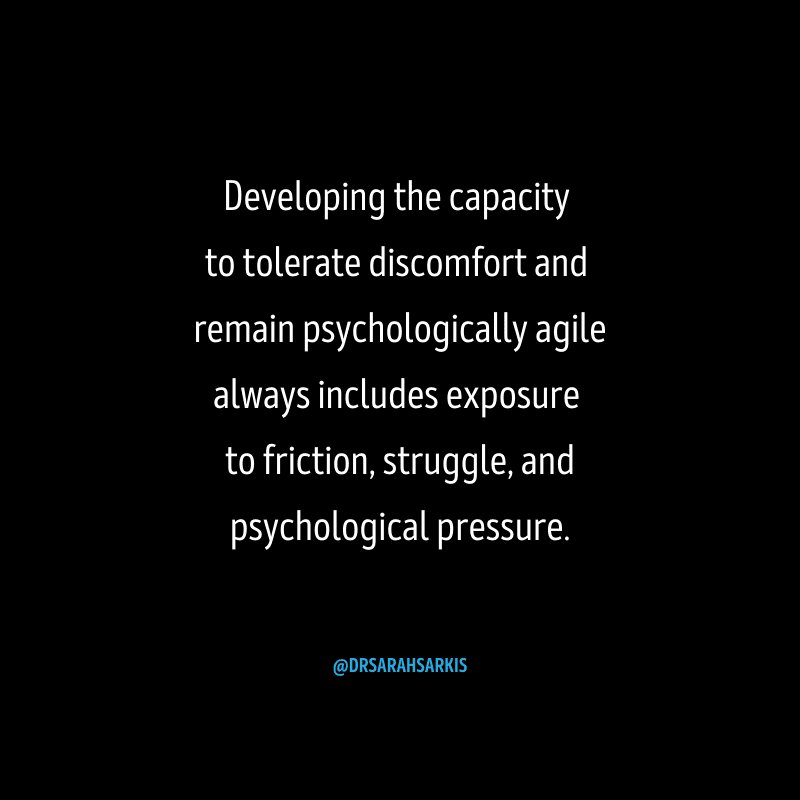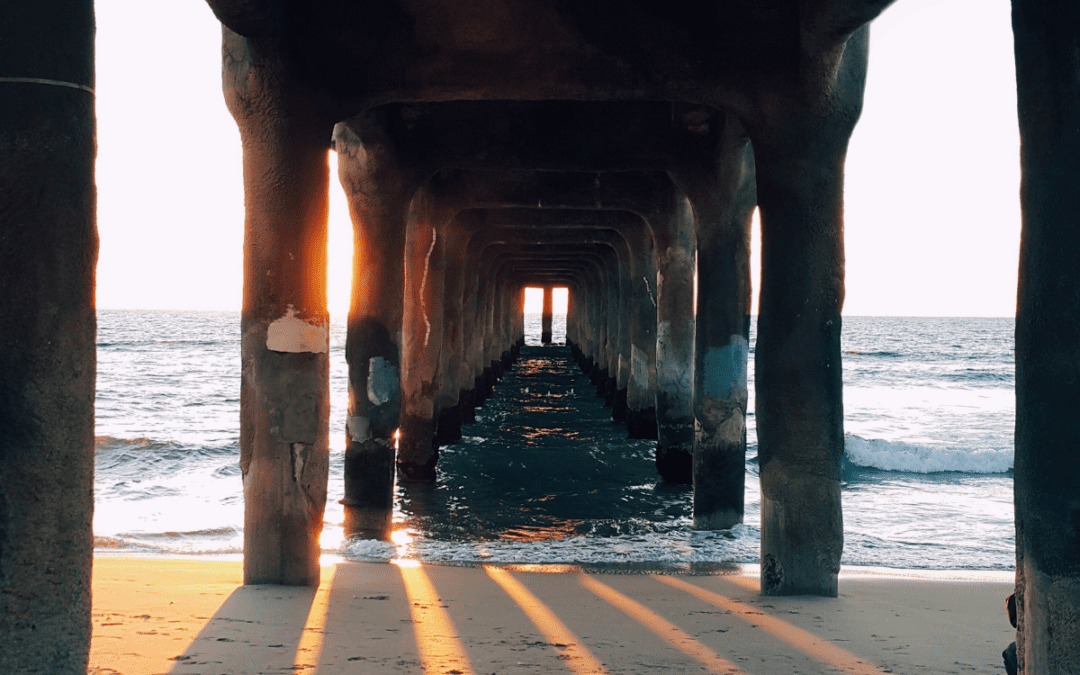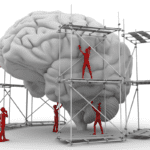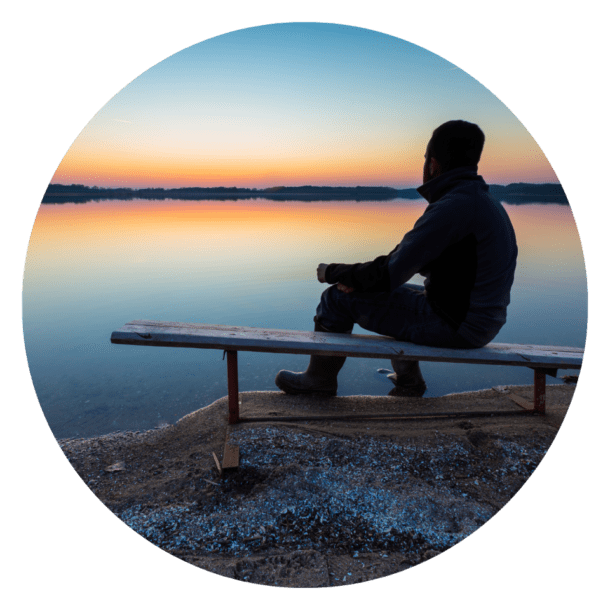If you follow my blog or if you’ve tuned in to any of my podcast appearances, you’ve heard me talk about the concept of psychological flexibility. This post is designed to convince you (once and for all) why psychological flexibility is THE key skill to invest in in 2021.
Don’t delay, you won’t age into this type of psychology. It doesn’t work that way. You have to earn this one.
Psychological flexibility allows us to adaptively respond (vs react) to the ever-changing landscape of our lives.
This is a subtle and profound internal agility, an acuity to both tolerate discomfort and repurpose its fuel for growth. Psychological flexibility turns adversity into our teacher, our true north. It allows us to lean into our frailties and source growth, perspective, and emotional endurance from the otherwise insufferable discomfort of being human. And it’s harder than it might sound, I assure you.
We have a tendency to become rigid in our habits and call it routine. We become inflexible in our thinking and call it conviction. And we resist change, preferring instead the comfort of consistency. We prioritize routine (and sometimes, for food, reason). We covet comfort. We create lives that protect our illusions of control. We avoid our feelings, by any means possible, and we let unconscious habit become the force behind most of our reactions.
I find myself constantly seeking shelter in these tendencies. I hide. I deflect. I avoid. I project. I deny. I numb. And I see it with all of my clients, too. Sure, it looks different from person to person on the surface; we each express these tendencies in idiosyncratic ways. But under the hood, it’s all pretty much standard stock. Down deep, we are all much more similar than not.
Developing the capacity to tolerate discomfort and remain psychologically agile always includes exposure to friction, struggle, and psychological pressure.

This past year, our routines were upended and replaced with a different beast altogether— a hybrid of monotony and uncertainty for months on end.
For me, the pandemic has been an existential reckoning.
It brought me nose-to-nose with the daunting realization that I don’t have control over much of anything in life, save for my own self-regulation. And even that gets murky, more often than I like to admit.
Outside of how I regulate my own response(s) to life, everything else is past my pay grade.
Life is a full contact sport. It will gut you. It really will. And I’m not trying to be provocative either. I would have said this even pre-pandemic. But if this past year hasn’t brought you to your bedrock at least once, consider yourself lucky or delusional. You choose. Dealer’s choice. (P.S. I’ve been both at times.)
By mid-summer it was painfully obvious that the notion of getting “back to normal” was as outdated as the “five-year plan” or shared office space.
There is no going back. Forward is our only option.
We will need this level of flexibility as we emerge on the back end of a year since the pandemic ravaged New York City and zigzagged across our country in one of the most volatile, polarized, and contentious times in our history. In the coming years, this psychological agility will need to be repurposed as creative and innovative fuel to help our economic engine rally from this global event.
We didn’t know it, but all year we have been training for exactly the type of mindset that is going help us claw our way forward to a new normal.
Go figure, nothing is ever wasted.
So, the question becomes: What can we do to limber up our psychological architecture?
First, consciously invest in becoming anti-fragile.
Make it a priority by exposing yourself to ongoing levels of psychological discomfort. Learn how to manage the discomfort of challenge, fear, panic, grief, etc. This will require learning how to observe what your coping skills are and determine whether or not they serve the goal of becoming psychologically flexible. If they don’t, you’ll need to replace those outdated styles of coping with different skills that emphasize grit and resiliency vs comfort and avoidance.
And your approach doesn’t need to be radical either. Learn something new. Commit a year to being a novice. Something you really suck at. You will quickly get to see what and how your mind and brain metabolizes fear, failure, self-worth, etc. Then, you have a point of entry to start to rework those tendencies that serve to keep you deeply entrenched in your “comfort zone.” Without constant exposure to discomfort, regression to your mean is inevitable. It’s just how we work.
Second, fix your sleep.
Emphasize quality, quantity, and consistency. All three factors matter in repairing long held patterns of chronic sleep disruption. This is one area where I suggest investing in some tech to get under the hood of your unique sleep profile. Eliminate the distractions (tech, light, caffeine, etc.) that disrupts your sleep and layer in practices that will enhance it (sunrise/sunset light, meditation, breath work, etc.). Without adequate sleep, you will forever be stuck in the reactionary patterns that govern your unconscious habits. One of the first things to atrophy when we are sleep deprived is self-regulation. If you are chronically exhausted, you don’t have a fighting chance against the tides of unconscious habit.

Finally, practice stillness.
Do it for a minimum of fifteen minutes, twice daily. It’s the quickest and cheapest way to learn about what owns you psychologically. And everyone is owned, down deep, by something. If you want to know what that something is, practice stillness. No app. No music. No mantra. Nothing. Just sit in the quiet of your own relationship with yourself. What surfaces will show you exactly where to start in order to train your psychological flexibility. Mine is worry. Report back to me what yours is once you’ve spent a month doing this daily.
Okay, that’s it for now. Stay curious. Get flexible. And, pass it on.








Thanks very much 🙂 this was super spot on for me and a clear articulation of aggregate thoughts 💭
Great column! Sleep and stillness are chronically lacking for me. Thanks for the reminder of their importance.
No word minced or wasted, straight to the message. Really enjoyed this and some of the concepts are part of my fiber already, missing the absolute stillness ….mushin an added goal